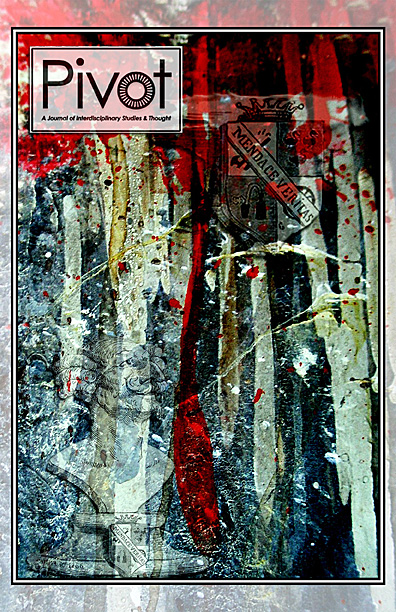The Aest/ethics of Imagination and Deceit in Guare’s Six Degrees of Separation: A Foucauldian-Aristotelian Reading
DOI:
https://doi.org/10.25071/2369-7326.32160Abstract
By examining the actions of Paul Poitier in John Guare’s Six Degrees of Separation as an aesth/ethic subject, this essay explores the possibilities and challenges of integrating the aesthetic and ethical imperatives of self-formation within the limits of one’s historical and cultural situation. In Guarian terms linking art and life, how does one find the salutary balance between chaos and control: how does one give structure, or teleological purpose, to a life of random color? While the scholarship on Guare’s play readily includes discussions on race, class, and sexuality, notably lacking are rigorous ethical examinations that explore the play’s signature concerns of aesthetics and ethics embedded in the issues of race and economics. A discerning examination of Paul’s aesth/ethic pursuit within the framework of Foucauldian and Aristotelian ethics illuminates the play in unprecedented ways, at the same time offering valuable ethical insights into our own endeavors to live the good life.
References
Andreach, Robert. Creating the Self in the Contemporary American Theatre. Carbondale, IL: Southern Illinois UP, 1998. Print.
Aristotle. Introduction to Aristotle. Ed. Richard McKeon. New York: Random House, 1947. Print.
Aristotle. Eudemian Ethics: Books I, II, and VIII. Trans. Michael Woods. Oxford: Oxford UP, 1992. Print.
Aristotle. Rhetoric. Ed. J. H. Freese. Perseus Digital Library. Tufts University. Web. 19 Feb. 2011.
Bigsby, C. W. E. Contemporary American Playwrights. New York: Cambridge UP, 1999. 40-43. Print. DOI: https://doi.org/10.1017/CBO9780511605772
Bristol, Michael. “Confusing Shakespeare’s Characters with Real People: Reflections on Reading in Four Questions.” Shakespeare and Character: Theory, History, Performance, and Theatrical Persons. Eds. Paul Yachnin and Jessica Slights. Basingstoke: Palgrave, 2009. 21-40. Print.
Deutsch, Eliot. Essays on the Nature of Art. Albany: SUNY P, 1996. Print.
Duggan, Patrick. “The Conflict Between Aestheticism and Morality in Oscar Wilde’s The Picture of Dorian Gray.” WR: Journal of the Arts & Sciences Writing Program 1 (2008-2009). Web. 5 Dec. 2010.
Foucault, Michel. “The Ethic of Care for the Self as a Practice of Freedom,” The Final Foucault. Eds. James Bernauer and David Rasmussen. Cambridge, Mass.: MIT, 1988. Print.
Foucault, Michel. “On the Genealogy of Ethics.” Trans. Catherine Porter. The Foucault Reader. Ed. Paul Rabinow. New York: Pantheon, 1985. 340-72. Print.
Foucault, Michel. The Use of Pleasure. Trans. Robert Harley. New York: Pantheon, 1985. Print.
Foucault, Michel. “What Is Enlightenment?” Trans. Catherine Porter. The Foucault Reader. Ed. Paul Rabinow. New York: Pantheon, 1985. 32-50. Print.
“Fraud.” ’Lectric Law Library. Web. 5 Dec. 2010.
Gillan, Jennifer. “‘No One Knows You're Black!’: Six Degrees of Separation and the Buddy Formula.” Cinema Journal 40.3 (2001): 47-68. Print. DOI: https://doi.org/10.1353/cj.2001.0008
Guare, John. Six Degrees of Separation. New York: Vintage Books, 1994. Print.
“Involuntary manslaughter.” ’Lectric Law Library. Web. 5 Dec. 2010.
Kant, Immanuel. “Beantwortung der Frage: Was ist Aufklärung?” [“Answer to the Question: What Is Enlightenment?”] Prometheus Online. Dec. 5, 1783. Web. 5 Dec. 2010.
Miller, James. “The Prophet and the Dandy: Philosophy as a Way of Life in Nietzsche and Foucault.” Social Research 65.4 (1998): 871-896. Print.
Seppä, Anita. “Foucault, Enlightenment and the Aesthetics of the Self,” Contemporary A

